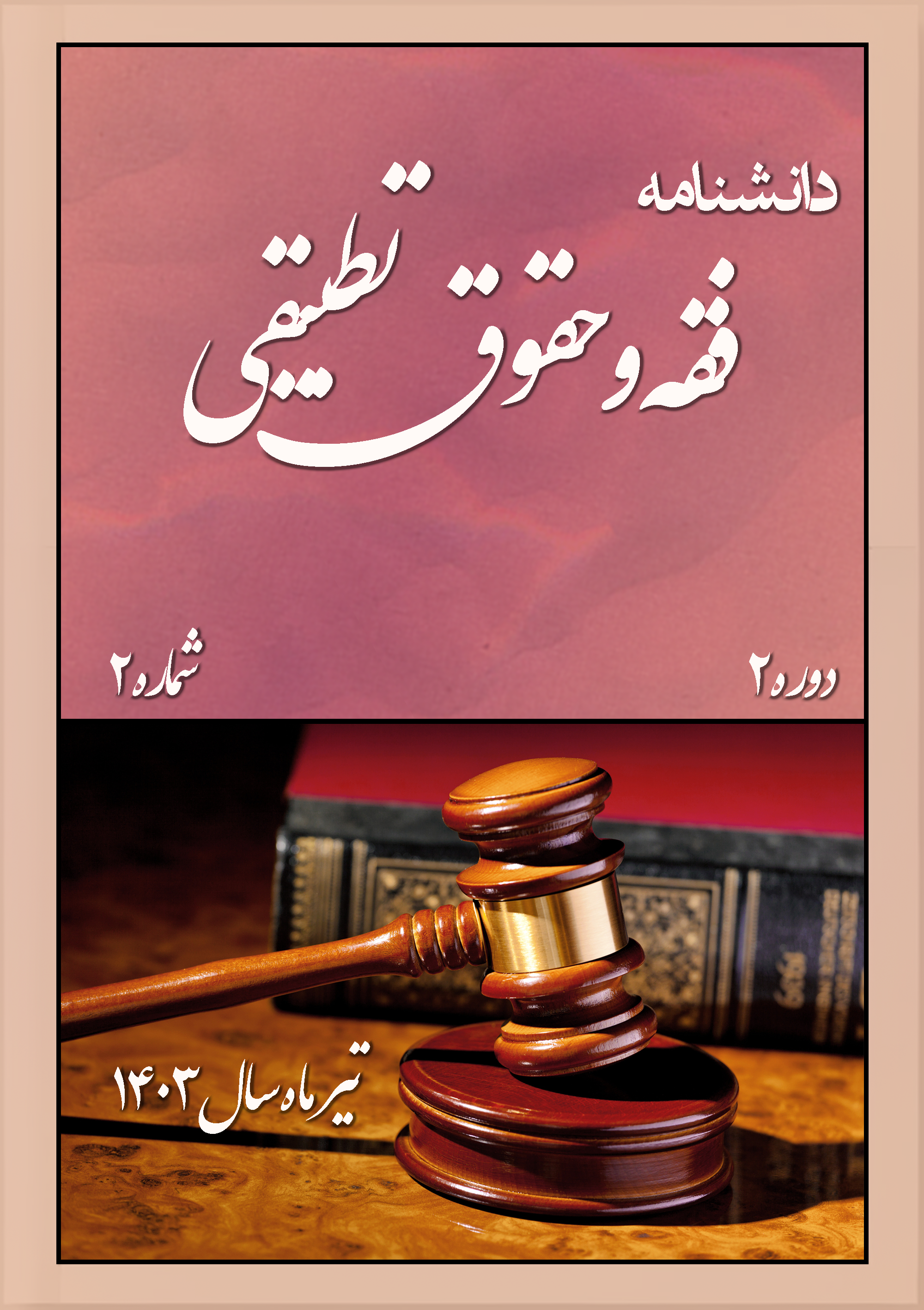نقش حقوق کیفری در مبارزه با تروریسم و تأثیر آن بر سیاستهای امنیتی
کلمات کلیدی:
تروریسم, حقوق کیفری, امنیت ملی, سیاستهای امنیتیچکیده
تروریسم یکی از چالشهای اساسی امنیت ملی و بینالمللی در دهههای اخیر بوده که مقابله با آن به دغدغهای جدی برای دولتها تبدیل شده است. در این میان، حقوق کیفری به عنوان یکی از ابزارهای قانونی برای مبارزه با تروریسم، نقش مهمی در پاسخدهی به این پدیده ایفا میکند. هرچند کارکرد اصلی حقوق کیفری مجازات مجرمان و حفظ نظم اجتماعی است، اما ماهیت سیاسی و پیچیده تروریسم میتواند این حوزه را از اصول بنیادین خود همچون عدالت، برابری و قانونی بودن دور سازد و آن را در معرض سوءاستفاده سیاسی قرار دهد. با این حال، در مقایسه با گزینههایی چون جنگ یا اقدامات صرفاً امنیتی، حقوق کیفری به دلیل ویژگیهای قانونی، شفافیت رویهای و رعایت حقوق بشر، گزینهای مشروعتر و مؤثرتر به شمار میرود. این ابزار حقوقی همچنین میتواند چارچوبی برای هماهنگی بهتر سیاستهای امنیتی با اصول دموکراتیک فراهم کند. بر همین اساس، راهکار مطلوب برای مبارزه با تروریسم، ایجاد رویکردی جامع و چندلایه است که در آن، حقوق کیفری در کنار سایر ابزارهای سیاسی، امنیتی، فرهنگی و اقتصادی به کار گرفته شود؛ به گونهای که ضمن تضمین امنیت عمومی، از تخطی از اصول بنیادین حقوقی و آزادیهای مدنی جلوگیری گردد.
دانلودها
مراجع
Abdollahi, M. (2014). The Consequences of the September 11th Events on the Fight Against Terrorism. Monthly Law Journal(1), 83.
Ackerman, B. (2004). The emergency constitution. Yale Law Journal, 113. https://doi.org/10.2307/4135710
Adam, A. (2009). Combating Terrorism; A Comparative Study of the European Union and the United States. NAJA Ideological-Political Organization.
Albrecht, H.-J. (2006). Terrorism; Risk and Legislation. Specialized Quarterly of Jurisprudence and Law, 3(11).
Amnesty International. (2021). Turkey: Law no. 7262 - A tool for silencing civil society. Amnesty Reports
Arefi. (2018). Balancing National Security and Individual Freedoms in the Light of Combating Terrorist Crimes Shahid Beheshti University].
Arefi, M. (2017). The Discourse of the Legislative and Executive Criminal Policy of the Islamic Republic of Iran in the Light of the Law on Combating the Financing of Terrorism and its Executive Bylaw. In Abstracts of the International Conference on the Legal-Criminological Dimensions of Terrorism. Allameh Tabataba'i University Publications.
Braithwaite, J. (2002). Restorative justice and responsive regulation. Oxford University Press. https://doi.org/10.1093/oso/9780195136395.001.0001
Dershowitz, A. (2002). Why terrorism works? Yale University Press.
Dworkin, R. (2002). The threat to patriotism. New York Review of Books.
Flory, M. (2005). International Law as a Tool for Combating Terrorism. In Terrorism; Legal Discourse. Nay.
Garland, D. (2001). The culture of control: Crime and social order in contemporary society. University of Chicago Press. https://doi.org/10.7208/chicago/9780226190174.001.0001
Gross, O. (2001). Cutting down trees: Law-making under the shadow of great calamities. In R. J. Daniels, P. Macklem, & K. Roach (Eds.), The security of freedom: Essays on Canada's anti-terrorism bill. University of Toronto Press. https://doi.org/10.3138/9781442682337-004
Gross, O. (2003). Chaos and rules: Should responses to violent crises always be constitutional? Yale Law Journal, 112. https://doi.org/10.2139/ssrn.370800
Haddon, W. (1972). A logical framework for categorizing highway safety phenomena and activity. Journal of Trauma, 12. https://doi.org/10.1097/00005373-197203000-00002
Haji-Jabbari, J. (2018). An Assessment of Iran's Legislative Criminal Policy in Combating and Financing Terrorism Islamic Azad University, Safadasht Branch]. Faculty of Humanities, Law Department.
Hakimiha, S. (2006). Terrorism in Iranian Criminal Law and International Instruments Tarbiat Modares University].
Hatami, M., & Haji-Zadeh, M. (2014). A Review of the
دانلود
چاپ شده
ارسال
بازنگری
پذیرش
شماره
نوع مقاله
مجوز
حق نشر 1403 صادق نویدی

این پروژه تحت مجوز بین المللی Creative Commons Attribution-NonCommercial 4.0 می باشد.










